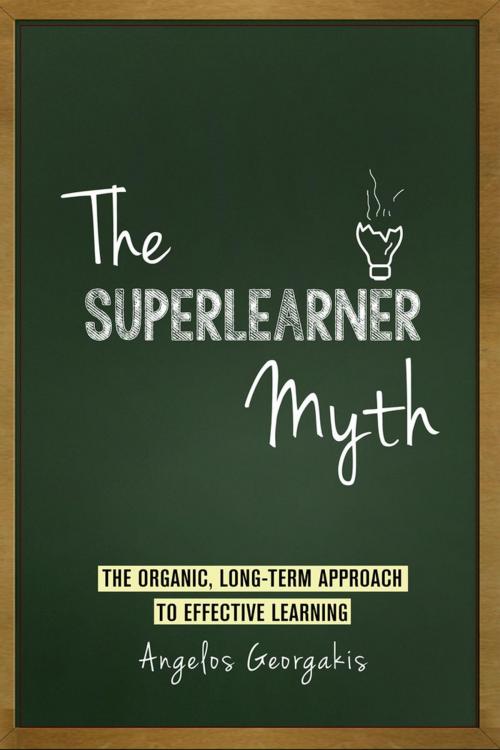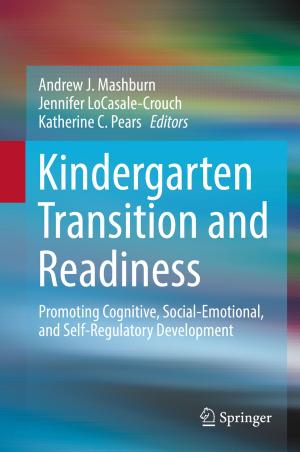The Superlearner Myth - The Organic, Long-Term Approach to Effective Learning
Nonfiction, Reference & Language, Education & Teaching, Student & Student Life, Study Skills, Educational Theory, Educational Psychology| Author: | Angelos Georgakis | ISBN: | 9781519978318 |
| Publisher: | Angelos Georgakis | Publication: | November 17, 2015 |
| Imprint: | Language: | English |
| Author: | Angelos Georgakis |
| ISBN: | 9781519978318 |
| Publisher: | Angelos Georgakis |
| Publication: | November 17, 2015 |
| Imprint: | |
| Language: | English |
Superlearner is the same as superforgetter. Research in cognitive psychology, which goes back more than one hundred years, has shown that effective learning is hard and requires time and effort. You can feel like a superlearner by consuming tons of information in record time, but, in that case, you compromise the long-term results of your efforts.
Your memory is not a hard disk to download books in a matter of seconds. Effective learning means you spend enough time to encode and give meaning to new information. You need to interpret, associate, interrelate, and compare new information with already known information. There are no shortcuts to this process.
Today everyone is talking about speed-reading. However, research has shown that testing, or the practice of retrieving information from our memory, is the most effective way to immunize new information and helps to prevent memory loss. Even more telling, the harder the retrieval, the better your memory will be.
Today it has become fashionable to talk about mastering a skill in ten hours, or learning a language in seven days, or attending an all-day crash course on the weekend. However, multiple studies in cognitive psychology have shown that massed practice gives you an illusion that you can master a skill quickly, but the results are only temporary. Instead, effective learning means you space your practice, you allow some forgetting to happen, you make mistakes, you squeeze your head, or you feel mental pain. Does it sound bad? Maybe it does, but this is 100% healthy, optimal, long-term learning.
This book aims to talk you through the truth about how you can learn effectively. This truth is not the author’s truth; it’s the truth of the science of learning. The suggestions here may go against your intuition because effective learning, as we will see, is counterintuitive. By following these suggestions, though, you will soon become a more sophisticated learner with an increased ability to assess and improve your learning.
We live in a fast-paced world where competition is high and acquisition of new skills is key to professional success. We can’t afford to lose time. We want to see quick results in anything we do. However, we need to understand that we are not machines. Don’t give your learning more speed. Instead, give it motivation, curiosity, and space. Only then will it produce the fruits you are looking for.
Superlearner is the same as superforgetter. Research in cognitive psychology, which goes back more than one hundred years, has shown that effective learning is hard and requires time and effort. You can feel like a superlearner by consuming tons of information in record time, but, in that case, you compromise the long-term results of your efforts.
Your memory is not a hard disk to download books in a matter of seconds. Effective learning means you spend enough time to encode and give meaning to new information. You need to interpret, associate, interrelate, and compare new information with already known information. There are no shortcuts to this process.
Today everyone is talking about speed-reading. However, research has shown that testing, or the practice of retrieving information from our memory, is the most effective way to immunize new information and helps to prevent memory loss. Even more telling, the harder the retrieval, the better your memory will be.
Today it has become fashionable to talk about mastering a skill in ten hours, or learning a language in seven days, or attending an all-day crash course on the weekend. However, multiple studies in cognitive psychology have shown that massed practice gives you an illusion that you can master a skill quickly, but the results are only temporary. Instead, effective learning means you space your practice, you allow some forgetting to happen, you make mistakes, you squeeze your head, or you feel mental pain. Does it sound bad? Maybe it does, but this is 100% healthy, optimal, long-term learning.
This book aims to talk you through the truth about how you can learn effectively. This truth is not the author’s truth; it’s the truth of the science of learning. The suggestions here may go against your intuition because effective learning, as we will see, is counterintuitive. By following these suggestions, though, you will soon become a more sophisticated learner with an increased ability to assess and improve your learning.
We live in a fast-paced world where competition is high and acquisition of new skills is key to professional success. We can’t afford to lose time. We want to see quick results in anything we do. However, we need to understand that we are not machines. Don’t give your learning more speed. Instead, give it motivation, curiosity, and space. Only then will it produce the fruits you are looking for.















